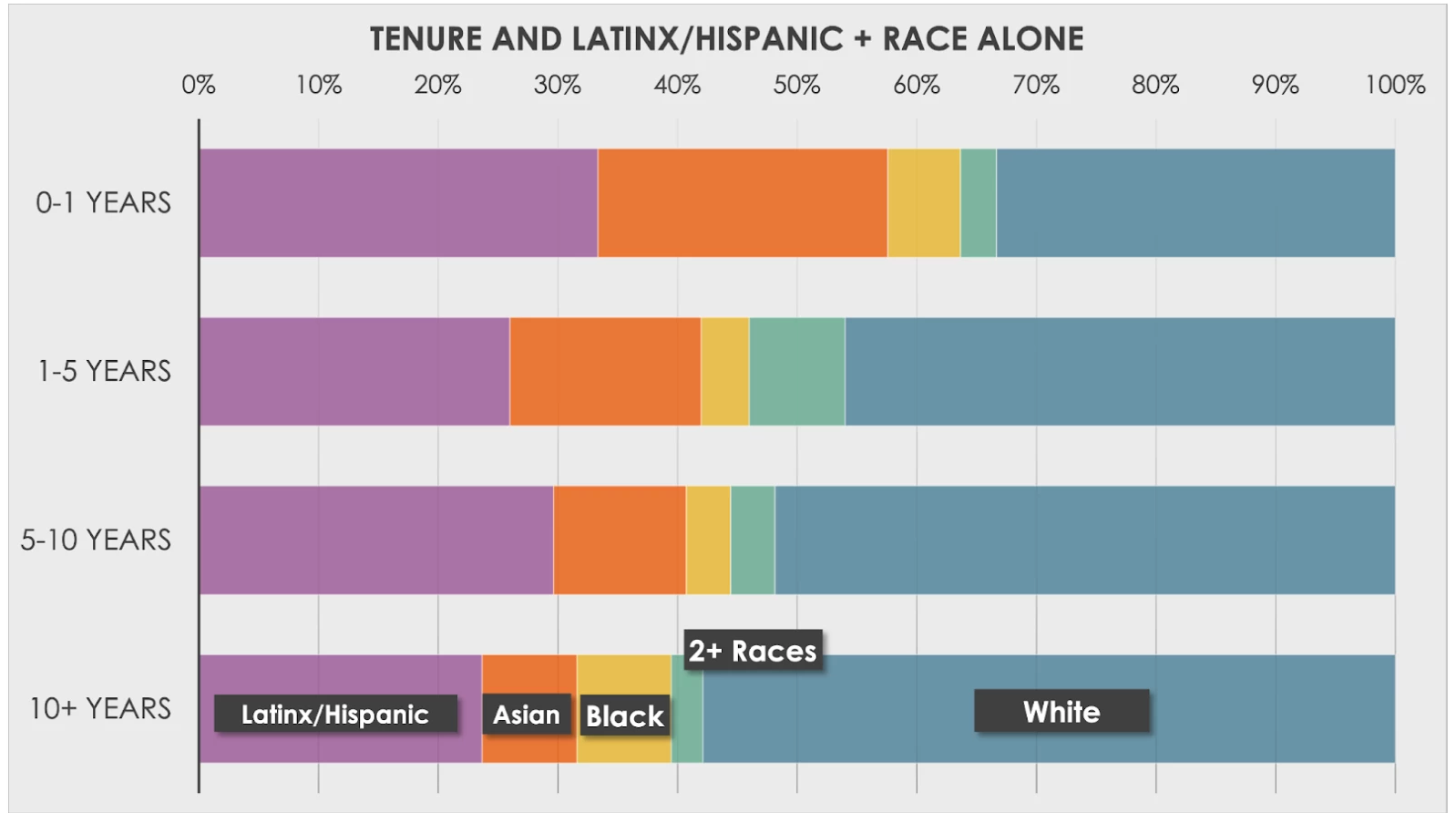How a DEI task force can help shift perspectives and drive change
Ashley Hopko, for API’s Better News, Through systematic changes backed by data, Southern California Public Radio improved hiring and retention processes, added employee resources and more.
Through systematic changes backed by data, Southern California Public Radio improved hiring and retention processes, added employee resources and more. This is a series on Better News to a) showcase innovative/experimental ideas that emerge from the Knight-Lenfest Newsroom Initiative and b) share replicable tactics that benefit the news industry as a whole.
This “win” features highlights from a piece previously shared on BetterNews.org by Ashley Alvarado, vice president for community engagement and strategic initiatives at Southern California Public Radio (SCPR), which operates 89.3 FM/LAist. SCPR participated in the Poynter Table Stakes program in 2018-19.
Southern California Public Radio created an independent diversity, equity and inclusion (DEI) task force that assessed where the organization stood with DEI efforts, including understanding how varying experiences and perspectives affect coverage decisions and how to improve the employee experience through fostering a culture of belonging.
Through systemic changes backed by data, the news organization improved hiring and retention processes, increased transparency of the style guide and ethics, added employee resources, and boosted interaction with community organizations.
Around 90% of the staff participated in the effort, including information collection or feedback on SCPR’s previous DEI efforts.
Creating the task force
Task force members were recruited from all levels within SCPR and tasked with identifying and creating recommendations to the organization’s executive team and the board of trustees. The task force prioritized impactful and measurable changes and used data to determine successes and areas for improvement.
Ground rules for DEI work included not using the task force for marketing purposes, unless the DEI Task Force Steering Group consented, and ensuring that the task force acted as an independent body, focusing efforts exclusively on anti-racism and DEI improvements.
Each committee member was allotted five hours of paid and protected time per week to put toward DEI efforts and supported with a backfill plan to help with other duties.
Key staff findings
The SCPR executive team and board accepted all 44 task force recommendations.
“While I can’t speak for the whole Task Force, I’ll say that I had never anticipated that the recommendations would be accepted at the level they were,” Ashley Alvarado, vice president of community engagement and strategic initiatives at SCPR, wrote in a Better News piece about the effort.
Many of the recommendations focused on improving staff experience, including a new onboarding process, protected training time for employees, development of hiring panels, relaunching an internal leadership program, publishing results of an annual staff survey and adding a DeleteMe service that helps staff members remove their private data from public sites.
The organization also extended its internship program to be year-round and increased compensation from minimum wage to a living wage.
An independently formed DEI-themed book club turned out to be extremely popular as well.
In a survey sent to the SCPR staff, more than 95% of staff members reported that their managers were dedicated to DEI efforts, showing commitment from leadership.
Data revealed that career tenure for Latinx and Asian staff members is drastically improving. Just over 30% of the staff self-identified as Latinx and another roughly 25% are Black. “This is a trend that has increased significantly in the last 10 years,” Alvarado said.
Implications for community accountability
“As with many public radio stations, our audiences have traditionally been disproportionately white and affluent compared with the demographics of our region, “ Alvarado said, adding that the team is working to serve “audiences traditionally excluded or underserved by public media.”
To diversify sources and help reflect the community voices of Los Angeles, the team launched a source tracking tool.
The organization has also committed to financially supporting staff members who want to participate in DEI organizations, such as the National Association of Black Journalists, The Association of LGBTQ+ Journalists, the Indigenous Journalists Association and more. SCPR will also connect with a community advisory board.
Lessons and advice
For other organizations looking to rethink their DEI approach, Alvarado warned that SCPR wished it had prepared better for the emotional work and capacity required for difficult topics. Coming in with a fresh perspective and ready to listen might bring up a few surprises, she added.
Communication is also key — for both task force members and interested parties companywide. SCPR held weekly staff meetings to report on progress. “This provided incremental updates, different opportunities for people to get involved and a space to share early wins,” Alvarado said.